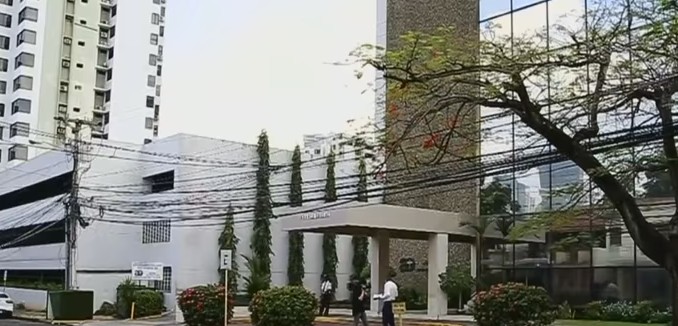The massive leak of documents from the Panamanian law firm Mossack Fonseca, otherwise known as the Panama Papers, has shed light on the role the company played in enabling Iranian sanctions busting.
While Mossack Fonseca has admitted to no wrongdoing in helping its clients invest money in offshore tax shelters, leaked documents show that it had dealings with Iranian companies that had been sanctioned by the United States, The Guardian reported on Wednesday.
Mossack Fonseca found out that it was working on behalf of the Iranian firm Petropars after the oil company was designated in June 2010 by the U.S. Treasury Department for its support of Iran’s missile and nuclear programs. Mossack Fonseca, which assigned Petropars an address in the British Virgin Islands, received a complaint from another client that was given the same address and was mistaken for a sanctioned company after and the U.S. designation was made.
“The episode highlights the perils of giving the same address to thousands of shelf-companies – and the lack of rigour in Mossack Fonseca’s due diligence procedures,” The Guardian wrote.
Once the tie to Petropars was exposed, Mossack Fonseca’s managing partner Jürgen Mossack sent an e-mail decrying the lack of adequate checks and insisting that the firm should never do business with “regimes and individuals from such places! Not because of OFAC [the Office of Foreign Assets Control, the US Treasury department that deals with sanctions] but out of principle.”
Petropars, which has offices in both London and Dubai and is controlled by Iran, was essential in obtaining foreign investments for developing the South Pars natural gas field in the Persian Gulf.
Three months after the designation, the law firm’s compliance team recommended dropping Petropars and associated companies. Mossack Fonseca ended its association with Petopars in May 2011.
The firm still maintained ties with other businesses backed by the Iranian regime, however. Through its London franchise, Mossack Fonseca maintained its business with an Iranian outfit called Petrocom, which had a Tehran address and shared Petorpars’ London accountant.
As required, Mossack Fonseca in the British Virgin Islands produced the necessary paperwork to do business with Petrocom. However, when Mossack Fonseca’s main office queried who the ultimate owner of Petrocom was, the London office responded, “I think we could assume that would be Mahmoud Ahmadinejad unless I’m mistaken.” The Guardian observed, “the comment makes it clear Mossack Fonseca’s UK office knew it was continuing to act for state-owned companies.”
The Treasury Department imposed sanctions on Petrocom’s parent company OIIC, which was described as part of a “network of front companies controlled by Iran’s leadership,” in June 2013. The purpose of these 37 front companies, according to Treasury, “is to generate and control massive, off-the-books investments, shielded from the view of the Iranian people and international regulators.” The front companies were controlled by a holding company called Execution of Imam Khomeini’s Order (EIKO).
Despite this, Mossack Fonseca continued its business relationship with Petrocom until December 2015.
American sanctions against Petropars and OIIC ended in January of this year as part of last year’s nuclear deal.
In an op-ed warning against the ending of sanctions on companies like EIKO last year, Mark Dubowitz and Jonathan Schanzer, respectively the executive director and vice-president of research for the Foundation for Defense of Democracies, quoted an Obama administration official who described EIKO as a means for Iran’s leadership to “profit from a shadowy network of off-the-books front companies . . . the Iranian government’s leadership works to hide billions of dollars in corporate profits earned at the expense of the Iranian people.”
According to Dubowitz and Schanzer, the latter of whom is a former Treasury Department official, the sanctions on EIKO were imposed “to shield the US-led global financial sector from Iran’s vast network of financial criminals and their illegal transactions.” Lifting the sanctions on EIKO, they wrote, would mean that “Khamenei will be free to invest billions around the world with impunity.”
According to Time Magazine, Mossack Fonseca has also worked for firms that have been sanctioned for supporting the Iran-backed regime of President Bashar al-Assad in Syria.
[Photo: Reuters / YouTube ]




